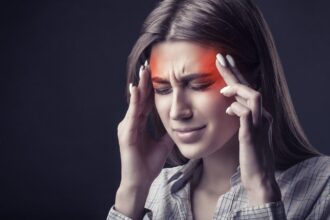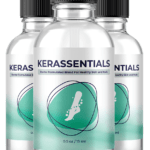Migraines can cause serious health problems
Migraine headaches can be excruciatingly painful and can affect your overall health. Millions of people suffer from migraines, and many of these people don’t realize the serious health effects that can result from having too many migraine headaches.
What is a migraine and what are the symptoms?
Most people have heard of a migraine. But, many people don’t know what a migraine is.
A migraine is caused by a tight band of blood vessels in your head. This band of blood vessels produces intense, throbbing pain, and can even cause other symptoms, such as nausea, vomiting, fatigue, and sensitivity to light and noise and some people may experience feelings of confusion or a loss of consciousness. It is common for people who have migraines to experience the symptoms at different times, like several times per day.
Are migraines different types of headaches?
Migraines are one of the most common triggers for headaches. However, there is a difference between migraine and headaches.
Migraine is a neurological disease that involves neurogenic inflammation. It is characterized by intense pain, often accompanied by nausea, vomiting, and sensitivity to light and sound.
Migraine headaches can’t be cured but can be treated effectively. The causes of migraine headaches are not well understood.
A migraine headache can last from eight hours to three days. Many people experience a migraine only once in their lifetime while others experience several migraines per month.
A migraine can affect any age group but is more common in the age group of 25-45. It can be hereditary and it’s often associated with other neurological conditions like epilepsy and migraine with aura.
Migraine headaches are also episodic; episodes can be triggered by certain factors such as stress, lack of sleep, and certain medications.
Migraine headaches are more severe than other headaches because they can make you feel nauseated and have other symptoms such as vomiting, sensitivity to light and sound, and neurological and visual disturbances.
What are the risks of getting migraines?
Migraines are a severe brain health issue, and you should be aware of the risks associated with them.
Migraines are caused by a variety of factors, but most people are likely to develop them at some point in their lives. They are most common in adults between the ages of 25 and 44, but they can occur at any age.
Migraines are migraine variant that is marked by symptoms such as severe headache, nausea, vomiting, sensitivity to light and sound, and visual disturbances. They can be debilitating, and some people find that they cannot work or take care of their daily responsibilities due to the pain and nausea that migraine sufferers experience.
Migraines are classified as either primary or secondary. Primary migraines are the most common type and are thought to be caused by a disturbance in the blood flow to the brain. Secondary migraines are caused by a variety of factors, including head trauma, a genetic disorder, or a drug or vitamin deficiency.
How can you prevent migraines?
Migraines make up approximately 18% of all headaches. They can cause severe throbbing pain, sensitivity to light, and even nausea. They can cause you to miss days of work, cancel important engagements, and stop you from doing the things you love.
While there is no cure for migraines, there are things you can do to help prevent them.
First, watch what you eat. Some foods can trigger or worsen a migraine, so try to avoid eating these foods if you have a migraine. Some foods trigger migraines in some people and not in others, so some people find that they are more affected by certain foods than others.
Unless you’re certain which foods trigger your migraines, it is safest to avoid eating those foods.
Second, exercise regularly. A 30-minute walk, swim or jog a few times a week can help you stay on a regular schedule. It can also help you get your blood flowing.
Third, get enough sleep. Migraines are more likely to occur in people who get less than the recommended seven to nine hours of nighttime sleep.
If you often experience migraines, you might want to consider purchasing some over-the-counter medication for symptoms. You may also wish to speak with a doctor about other medication options, including anti-seizure medications, beta-blockers, or antidepressants.
What are the best treatments for migraines?
Migraines, headaches, dizziness, and nausea are often caused by disruption of blood flow in the brain.
Several treatments can help restore blood flow and relieve symptoms. Although there is no cure for migraines, there are treatments that can help control symptoms.
Treatments include:
- Lifestyle changes.
- Migraine medications.
- Triptans.
- Painkillers, such as ibuprofen (Advil, Motrin).
What to do if a migraine is a life-threatening emergency.
Migraines, headaches that are sometimes mistaken for a seizure, can be life-threatening. If you get one, don’t ignore it. Get immediate medical attention.
Most people have a migraine once or twice a year. They generally last for 4 hours to 3 days. Most people just deal with them, but some actually die, and it can often be prevented. Learn what’s happening to your body.
If you have migraines, you’re not alone. According to the National Headache Foundation, 10% of American women and 6% of American men suffer from migraines.
If you have a family history of migraines, you are more likely to get them too.
There are a few different triggers for migraines.
- Hormones.
- Stress.
- Common foods such as chocolate, cheese, and red wine.
- Certain foods such as aged cheese, cured ham, red wine, aged beef, and aged hard salami.
What lifestyle habits might help you prevent or treat migraines?
There are lifestyle habits that can help prevent or treat migraines.
Eating a healthy, balanced diet and avoiding foods that trigger migraines is essential.
Eating regular meals and snacks throughout the day will keep blood sugar levels consistent and help minimize migraine triggers. Avoiding caffeine and alcohol is also recommended, as these substances can cause dehydration and trigger migraines.
Exercising regularly and getting plenty of rest are also important in managing migraines. Exercise helps reduce stress, which is a common migraine trigger, and getting the recommended 7-8 hours of sleep each night can help you feel rested and reduce migraine episodes. Additionally, practicing relaxation techniques can help reduce the frequency and intensity of migraines. Taking time each day to practice deep breathing, yoga, or meditation can make a big difference in lowering migraine triggers.
Finally, keeping a migraine diary can help identify your triggers, as well as track the effectiveness of any lifestyle changes you are making. Taking notes on the frequency, intensity, and duration of your migraines, as well as any potential triggers or treatments you have tried, can help you find the best migraine management strategy for you. By following these lifestyle habits, you can help prevent and treat migraines and lead a healthier and happier life.
Bottom line
Migraines are a serious brain health issue that can cause great distress and disruption in daily life. To help prevent or treat this condition, it is essential to develop and maintain healthy lifestyle habits. These can include regular exercise, drinking plenty of water, getting enough sleep, and reducing stress. Exercise helps to reduce stress and increases endorphin levels in the body, which can help reduce the frequency of migraines.
Drinking plenty of water helps to keep the body hydrated and helps to reduce the risk of headaches and migraines.
Getting enough sleep is also important for overall health, as insufficient sleep can make migraines worse. Finally, managing stress is crucial for migraine sufferers.
Stress can cause or worsen migraines, so it is important to practice meditation and relaxation techniques, such as deep breathing, to help reduce stress. Practicing these lifestyle habits can help prevent or reduce the frequency and severity of migraines.
It is also important to practice good sleep hygiene. Set up a bedtime routine and stick to it. Avoid naps, heavy meals, alcoholic beverages, caffeine, and alcohol before bed as well.






















